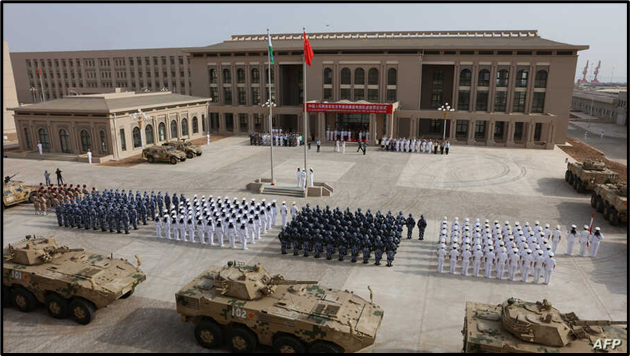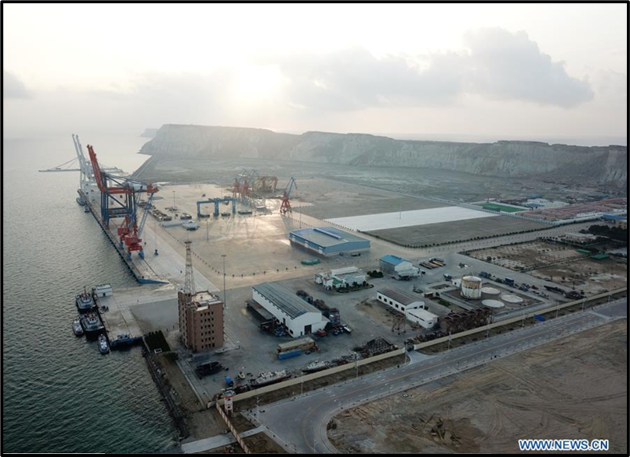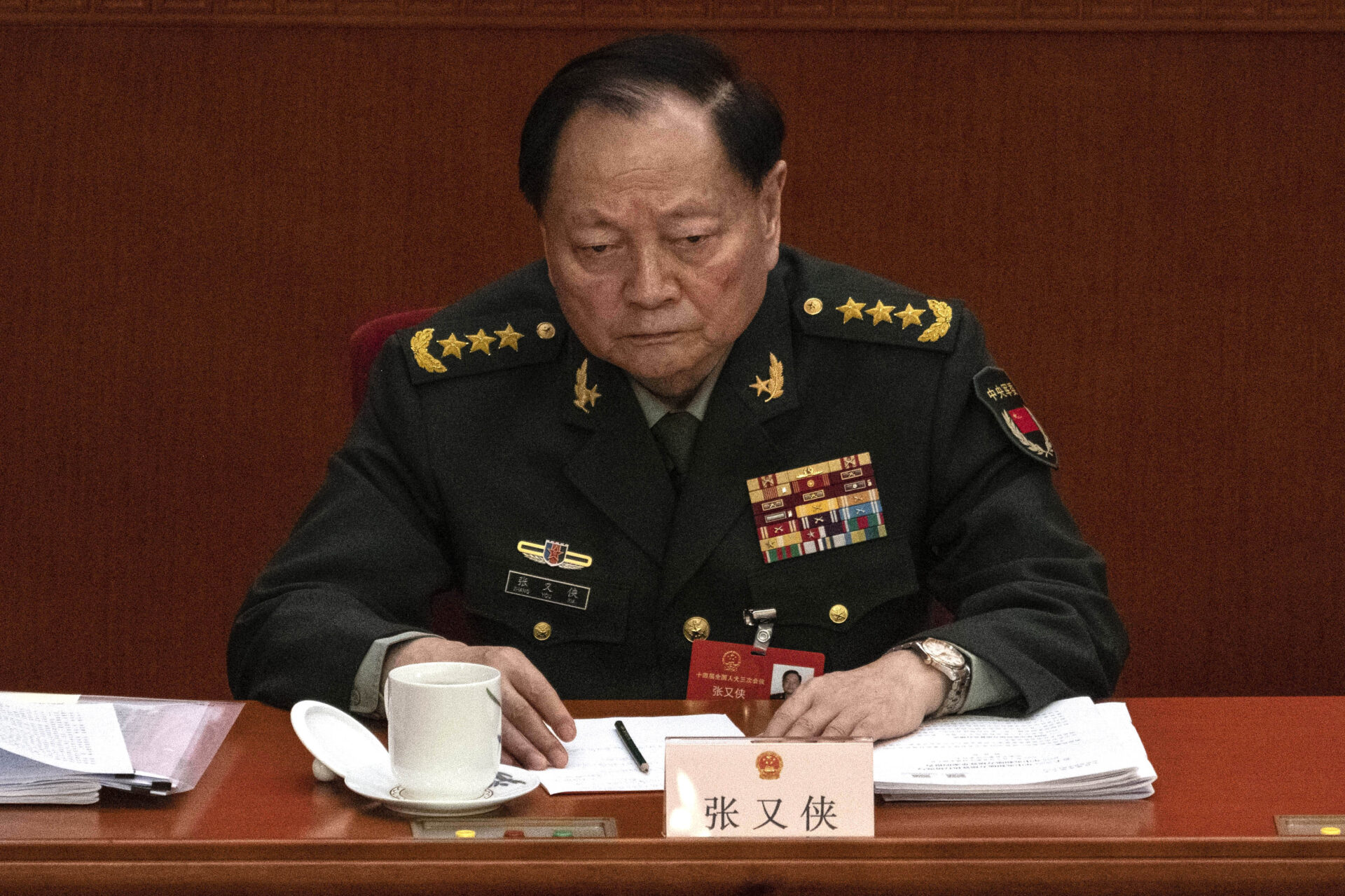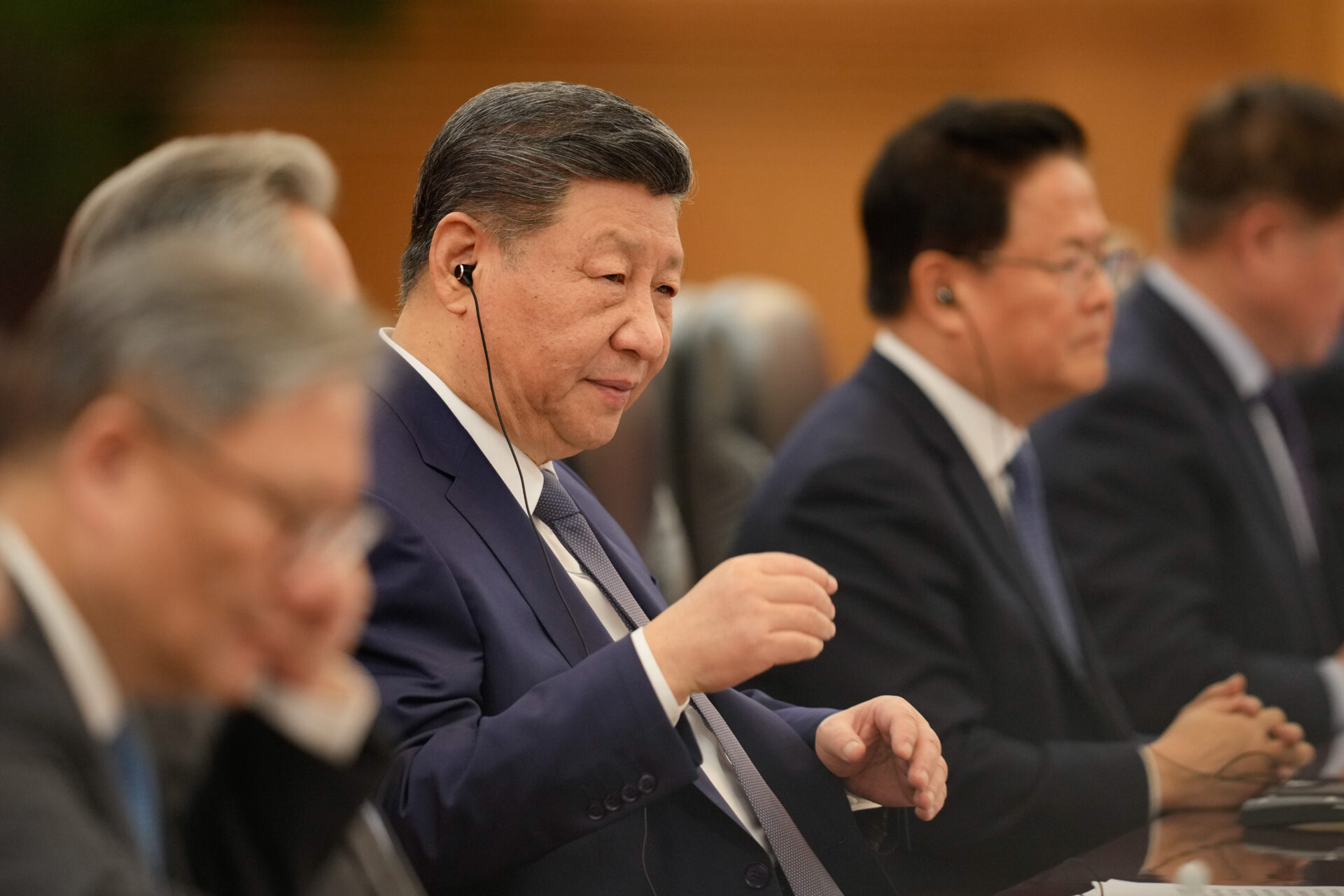
Trouble Finding Partners: Barriers to China’s Overseas Basing
Trouble Finding Partners: Barriers to China’s Overseas Basing
Introduction
As the People’s Liberation Army (PLA) goes global, it will increasingly need reliable access to overseas bases and dual-use facilities to sustain operations in faraway theaters. Recent U.S. defense and intelligence reports indicate that the People’s Republic of China (PRC) is prospecting for locations where the PLA could obtain access and logistical support. According to the Department of Defense, Beijing has “likely considered” a dozen candidate countries that could play host to “military logistics facilities.”[1]
As Beijing explores its options, Chinese analysts have begun to pay attention to potential host nations and their suitability for PLA access and use (China Brief: October 19, 2020; March 22, 2019). This article samples a budding literature on the requirements for China’s overseas military presence. It finds that Chinese observers are realistic about the challenges and costs of obtaining bases and facilities abroad. The literature further demonstrates a keen awareness that capable host nations and adroit Chinese statecraft are both essential to the PLA’s plans to go global.
Importance of Quality Host Nations
Chinese strategists recognize that the expected performance of foreign logistics support depends in large measure on the host nation’s political stability, economic health, and bilateral ties with China. Their assessment of the PLA’s first overseas base in Djibouti, established in 2017, is telling. One study acknowledges that Djibouti is among the least developed countries in the world. It lacks natural resources and a well-educated workforce, and its agricultural and industrial foundations are weak.[2] Unable to acquire materials locally, the PLA support base has been compelled to import basic goods, some of which were reportedly 20 times more expensive than equivalent items sourced in mainland China.[3]
Chinese commentators hold similarly dim views of Pakistan, home to one of the PLA’s prospective logistics points at Gwadar. As one author notes, Pakistan suffers from political instability, terrorist threats, a separatist movement in Balochistan, an underdeveloped economy, a weak industrial base, poor infrastructure, and socio-cultural obstacles that include local resistance to modernization.[4] These factors have directly contributed to Gwadar port’s lackluster performance since its inauguration in 2007. Describing Gwadar as a “bare port” (裸港, luogang), the study complains that its supporting facilities and infrastructure have remained woefully inadequate for fulfilling China’s needs. These problems bode ill for the PLA’s future presence there.

A study comparing Djibouti to Singapore, where the U.S. Navy enjoys access to Changi Naval Base, provides clues about the kinds of host nations that China believes are important for its global plans. The authors concede that while Djibouti has maintained relative political stability since the late 1990s, its economic weaknesses could prove to be a liability to Chinese basing arrangements there. The authors also express some concerns that the majority Muslim country could potentially raise cultural barriers to working with China, but remain hopeful that Beijing’s positive international image could help obtain wide social acceptance of the PLA’s presence. They acknowledge that Djibouti may not be able to contribute directly to the development of naval facilities. Instead, China’s financial largesse could help to accelerate investments in the African nation’s fine deep-water port.[5]
In contrast, Singapore boasts a stable political system and an effective government. It is an advanced economy; a major hub of global finance and trade; a world-class innovation base; and a multicultural, Westernized, and cosmopolitan society. In short, the island-state possesses the right qualities to serve as an exemplary host nation, as it has for years.[6] While the study does not provide an in-depth comparative assessment, it clearly illustrates the profound differences between the two host nations. Left unstated is that its superior sinews of national power make Singapore an ideal partner with which to arrange access and basing.
Another study on Diego Garcia—a British overseas territory that is home to a critical U.S. military facility—shows that America’s special relationship with the United Kingdom confers unique value to the island base in the Indian Ocean. The close ties, unrivaled by any other U.S. alliance, ensure the long-term sustainability of U.S. access while allowing for a far more permissive operating environment.[7] The United States regularly deploys politically sensitive weaponry to Diego Garcia, including nuclear-powered submarines and nuclear-capable bombers.
The capabilities of the Djibouti support base and other candidate access points for the PLA are a far cry from the bases such as Changi and Diego Garcia that are available to U.S. forces, much less major forward bases such as Yokosuka naval base and Kadena airbase in Japan. The lesson is that a high-quality strategic partner is essential to obtaining reliable overseas access.
The Costs of Access to Host Nations
Chinese writings exhibit a growing awareness—and wariness—of the complex political, diplomatic, cultural, and religious sensitivities surrounding the use of foreign bases. One study observes that the management of overseas bases is not strictly a military affair. Rather, it encompasses the political, diplomatic, cultural, and religious spheres of host nations as well. As such, basing arrangements require Beijing to adopt an interagency process that draws in the party-state apparatus, law enforcement, security and intelligence agencies, and municipal governments.[8] For example, China must anticipate that host nations would require: 1) agreements that underwrite the legal and jurisdictional basis for PLA presence; 2) protections and safeguards for local communities; 3) efforts to mitigate pollution, noise, and crime; and 4) measures to address the fallout from death and injury of local citizens.[9] One author identifies 21 U.S. treaties and agreements with counterparts worldwide, each tailored to local circumstances, that govern overseas basing.[10] By implication, Beijing will need to harness considerable diplomatic capital to obtain comparable levels of access.
Chinese observers further acknowledge that future disputes with host nations could increase China’s diplomatic liabilities. Basing arrangements perceived as unfair or coercive could sow resentment among local communities, eventually turning them against a PLA presence on their soil. Two authors liken the social dynamics of base politics to that of an active volcano: dormancy is just temporary, but an eruption could do permanent damage.[11] One scholar thus advises Beijing to avoid repeating the mistakes of other great powers, such as the United States, that became overly exposed to the risks of overseas basing. China should avoid power politics and interventionist policies, instead relying primarily on economic and cultural engagement to fulfill its basing ambitions.[12] Given China’s relative inexperience, it remains unclear whether Beijing would be nimble enough to successfully manage the messy domestic politics of other nations.
Chinese scholars have also begun to pay more attention to the legal implications of overseas basing.[13] They acknowledge that Beijing needs to do much more to investigate the legal basis upon which jurisdictional disputes and other problems would be resolved with host nations. They recognize that poorly adjudicated decisions about the host nation’s sovereignty and territorial rights could have severe and lasting consequences for China’s standing abroad.[14] According to two experts, basing arrangements that rest on dubious legal foundations could lend credence to the “China threat theory,” heightening antagonisms and triggering counterbalancing behavior abroad.[15] Given Beijing’s long history of defending sovereignty’s sanctity and opposing outside meddling in other countries’ internal affairs, it will need to adroitly balance the operational needs of overseas bases against host nations’ political sensitivities.
Conclusion
The open-source literature reviewed here implicitly acknowledges that Beijing could have trouble attracting high quality, dependable partners to fulfill its quest for a world-class PLA that can project power across great distances. Beyond the economic development and political stability of host nations, the nature of Beijing’s relationships with its counterparts will be crucial to the reliability of the PLA’s overseas presence. Fair-weather friends would likely wilt in times of duress, withdrawing support when Beijing would presumably need access to their facilities most.
America’s hard-won experiences in basing and access show that tight bonds do not materialize overnight: they are forged by intangibles such as trust, shared values, institutionalized interactions, and a history of close cooperation during peace and war. Whether Beijing can transform its largely transactional overseas relationships into durable ones that can withstand the stresses of great power competition or even war is uncertain.
The writings further reveal concerns about the multiplying commitments that would accompany a more robust access network. Chinese strategists recognize that each new base or facility and its host nation would generate their own unique political, diplomatic, economic, and legal demands as well as operational requirements. Whether the PLA’s future overseas access arrangements could emerge as a significant liability—akin to the costs of empire—remains to be seen. The low quality of host nations and the high price of access could, in turn, constrain and complicate the PLA’s expansion overseas.
Toshi Yoshihara is a Senior Fellow at the Center for Strategic and Budgetary Assessments (CSBA). He is the co-author, with Jack Bianchi, of Seizing on Weakness: Allied Strategy for Competing with China’s Globalizing Military, a CSBA study from which this article is drawn.
Notes
[1] Office of the Secretary of Defense, Annual Report to Congress: Military and Security Developments Involving the People’s Republic of China (Arlington, VA: Department of Defense, 2020), p. 128.
[2] 杨克 高扬 [Yang Ke and Gao Yang], “浅析吉布提保障基地建设的战略价值 [Analysis of the Strategic Value of the Djibouti Support Base Construction],” 石家庄学院学报 [Journal of Shijiazhuang University], no. 2, 2018, p. 81.
[3] 罗雷 吴晓东 刘宝新 乔浩伟 [Luo Lei, Wu Xiaodong, Liu Baoxin, and Qiao Haowei], “海军远海运输投送能力建设研究 [Research on Building the Navy’s Far Seas Transportation and Projection Capabilities],” 军事交通学院学报 [Journal of Military Transportation University], no. 2, 2020,pp. 5-6.
[4] 郭令丽 [Guo Lingli], “中国经略瓜达尔港的挑战与策略 [The Challenges and Policy Implications of China’s Strategic Management of Gwadar Port],” 南海热带海洋学院学报 [Journal of Hainan Tropical Ocean University], vol. 26, no 4, April 2019, pp. 31-32.
[5] 罗朝晖 万捷 李弘扬 [Luo Chaohui, Wan Jie, and Li Hongyang], “我国海军海外基地选址因素研究 [Research on the Factors Behind Selecting the Location of Our Nation’s Overseas Naval Bases],” 物流技术 [Logistics Technology], no. 6, 2019, p. 143.
[6] Ibid., p. 143.
[7] 许可 [Xu Ke], “构建‘海上丝路’上的战略支点—兼议迪戈加西亚基地借鉴作用 [Building a Strategic Strong Point on the ‘Maritime Silk Road’—A Discussion of the Diego Garcia Base’s Role as Reference Point],” 亚太安全于海洋研究 [Asia-Pacific Security and Maritime Affairs], no. 5, 2016, p. 16.
[8] 吴晓东 孙大同 [Wu Xiaodong and Sun Datong], “海外保障基地装备物资运输安全管理研究 [Research on the Security Management of Equipment and Materiel Transportation for Overseas Support Bases],” 军事交通学院学报[Journal of Military Transportation University], no. 1, January 2018, p. 61.
[9] 薛桂芳 郑洁 [Xue Guifang and Zheng Jie], “中国21世纪海外基地建设的现实需求与风险应对 [Realistic Needs of and Risk Response to China’s Overseas Base Construction in the 21st Century],” 国际展望 [Global Review], no. 4, 2017, p. 120.
[10] 吴子昊 [Wu Zihao], “美国获取海外军事基地的法律方式探析 [An Analysis of U.S. Legal Methods of Obtaining Overseas Military Bases],” 军队政工理论研究 [Theoretical Studies on PLA Political Work], no. 2, 2017, p. 130.
[11] 李庆四 陈春雨 [Li Qingsi and Chen Chunyu], “试析中国的海外港链基地战略 [Analysis of China’s Overseas Port Chain Base Strategy],” 区域与全球发展 [Area Studies and Global Development], no. 2, 2019, p. 135.
[12] 张弛 [Zhang Chi], “大国海外力量的布建模式及对中国的启示 [The Overseas Deployment Models for Great Powers and Their Implications for China],” 社会科学 [Journal of Social Sciences], no. 6, 2018, pp. 25-26.
[13] 邹立刚 王章平 [Zou Ligang and Wang Zhangping], “我国海外军事基地安全防卫法律问题研究 [Research on Legal Issues Surrounding the Security and Defense of China’s Overseas Military Bases],” 中国海洋大学学报 [Journal of Ocean University of China], no. 3, 2020, pp. 101-102.
[14] 薛茹 [Xue Ru], “国际上和平时期域外驻军的法律问题 [International Legal Issues Regarding Peacetime Overseas Deployment of Forces],” 西安政治学院学报 [Journal of Xi’an Politics Institute], no. 4, 2016, p. 115.
[15] 司玉琢 袁曾 [Si Yuzhuo and Yuan Zeng], “建立海外军事基地的国际法规制研究 [Research on International Laws and Regulations for Establishing Overseas Military Bases],” 东北大学学报 [Journal of Northeastern University], no. 2, March 2018, p. 195.


